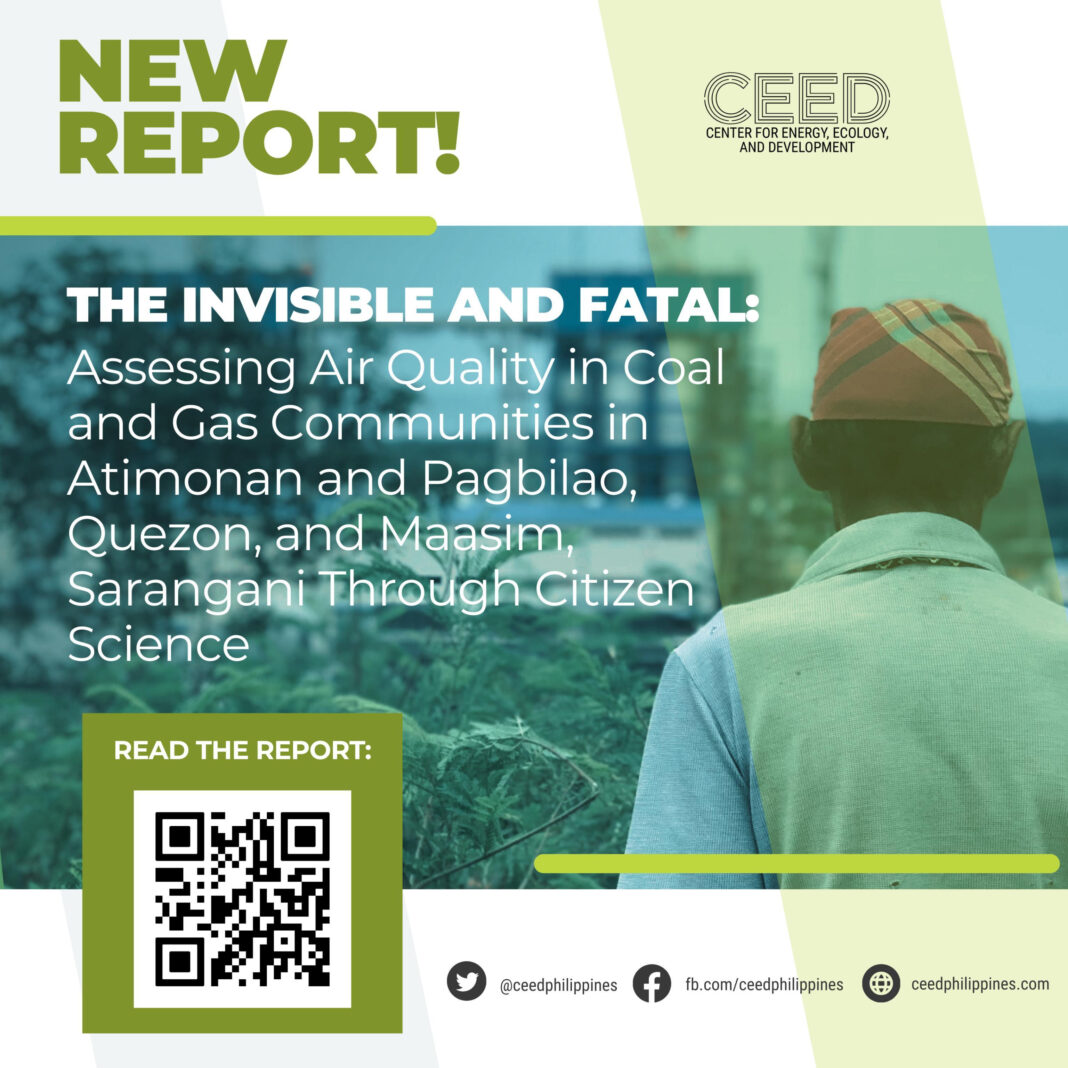Urgent call to update Clean Air Act also highlighted
With COP28 conversations centered around Energy Day, a sustainability think-tank released new report showing coal-impacted sites of Atimonan and Pagbilao in Quezon, and Maasim Sarangani exceed local and international air quality standards, exposing communities to elevated environmental hazards and health risks from dirty fossil fuels that remain the primary source of the Philippine energy grid.
The Center for Energy, Ecology, and Development’s (CEED) report looks into the implications of heavy reliance on fossil fuels, specifically focusing on impacts on air quality, and subsequently, the health of frontline communities foremost vulnerable to the climate crisis.
“This report on air quality underscores a crucial reality – our continued reliance on fossil fuels casts a long shadow in our coal-affected communities. As coal plants are being converted to gas plants to prolong the life of fossil fuels, one thing remains the same: compromised air quality puts an enormous strain on health, livelihoods, and the environment,” said Avril de Torres, Deputy Executive Director of CEED.
Atimonan, Quezon is the location of Atimonan One Energy’s then-proposed coal-fired power plant now proposed to be converted to a gas-fired power plant while Pagbilao, Quezon is the location of a proposed gas-fired power plant and a proposed LNG terminal, both owned by Energy World Corporation. Maasim Sarangani is the location of an existing coal-fired power plant owned by Sarangani Energy Corporation.
According to findings, all testing sites exceeded the Department of Energy, and Natural Resources’ (DENR) national air quality standards and fared worse against international standards set by the US Environmental Protection Agency (EPA) and World Health Organization.
“We cannot ignore the cries of communities impacted by fossil fuels, especially in Quezon where six gas plants are proposed to be built. It’s time to heed the urgent call for an end to fossil fuel dependency, not just for cleaner air but as a moral imperative to protect our common home. We are taking a stand against coal and we recognize that fighting against gas is equally pivotal. It’s a unified effort to protect communities, preserve biodiversity, and ensure a sustainable future,” said Rev. Fr. Warren Puno, Convenor of Quezon for Environment (QUEEN) and Parish Priest of Our Lady of Peace & Good Voyage Parish in Ponon, Atimonan, Quezon.
CEED also called to update the long-outdated Clean Air Act and for DENR to update the National Ambient Air Quality Guidelines Values to be on par with the most stringent and timely international standards like that of the World Health Organization.
“It’s time for our air quality monitoring standards to meet the benchmarks set by international organizations like the WHO. Aligning our standards is more than a necessity; it’s a commitment to ensuring public health and environmental integrity. By adopting robust monitoring measures on par with global standards, we can accurately track pollutants, assess risks, and take proactive steps to safeguard communities. This isn’t just about data; it’s about empowering informed decisions that prioritize the well-being of all,” said Brent Ivan Andres, CEED’s Deputy Head of Legal and Policy.
CEED also emphasized the need for the Philippines to ditch both coal and gas and embrace its great potential of harnessing renewable energy to protect its people and environment.
“We have a clear pathway toward aligning with the 1.5C goal, which is a 100% renewable energy transition. We urge the government to seize this pathway to do away with fossil fuels and safeguard our people. There should also be no space for transition mechanisms that in fact prolong the life of otherwise stranding coal, and absolve their developers from accountability for externalities caused by their plants, including the social costs of air pollution,” added de Torres.







